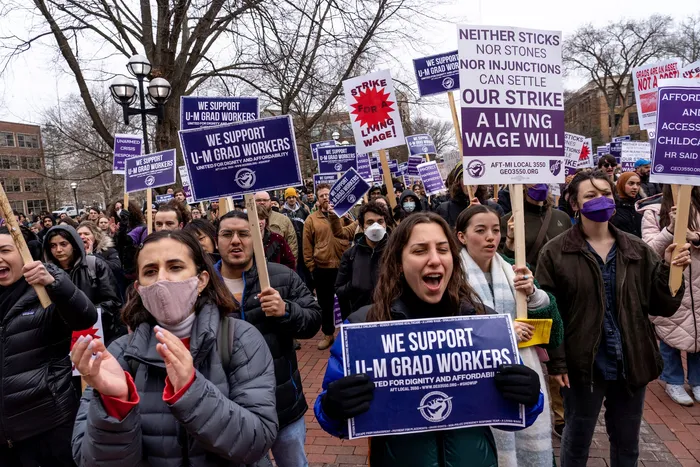As we navigate through an unprecedented economic landscape, the reality for millions of American workers is grim. A staggering 40% of the workforce is living paycheck to paycheck, struggling to make ends meet, while corporate giants are raking in record profits. This stark contrast raises urgent questions about economic justice and workers" rights.
Corporate Profits Skyrocket Amid Worker Struggles
According to a recent report, corporations have amassed over $300 billion in profits during the last fiscal year alone. This windfall comes at a time when workers are facing escalating costs of living, stagnant wages, and increasing job insecurity. The gap between the wealthy elite and the working class has never been wider.
Wage Stagnation and Rising Costs
The average hourly wage for American workers has barely kept pace with inflation. As prices for essentials like housing, food, and healthcare continue to rise, many are finding it increasingly difficult to sustain their families. The Economic Policy Institute reports that real wages have seen minimal growth over the past two decades, leaving workers vulnerable and exposed.
Employee Rights Under Attack
As corporate profits soar, so do violations of employee rights. Workers are facing unfair labor practices with alarming frequency as companies prioritize profits over people. Union busting, wage theft, and retaliatory firings are just a few tactics being employed to silence dissent and crush collective bargaining efforts.
Labor Organizing in the Face of Adversity
However, workers are fighting back. Grassroots labor movements are gaining momentum, with unions like the United Farm Workers and the Service Employees International Union leading the charge. These organizations are not only advocating for better wages and working conditions but are also pushing for systemic changes that protect workers" rights.
\n\n
Labor actions across US as unions seek better conditions for ...
Legislation Fails to Keep Pace with Reality
Despite the growing awareness of these issues, legislative efforts to protect workers remain insufficient. The Employee Retirement Income Security Act (ERISA) of 1974, while a step in the right direction, has not evolved to address the current challenges facing workers today. As reported by the Department of Labor, there is an urgent need for comprehensive reforms that prioritize the needs of workers over corporate interests.
Surveillance and Privacy Concerns
The rise of surveillance capitalism further exacerbates the plight of workers. Many employees now face constant monitoring in the workplace, leading to a culture of fear and compliance. This erosion of privacy is just another tool used to suppress dissent and discourage collective action.
The Call for Solidarity and Action
It is imperative that workers, activists, and allies unite to demand change. Organizing for better wages, improved working conditions, and a fairer economy is not just a labor issue; it is a human rights issue. We must hold corporations accountable for their exploitation and advocate for policies that empower workers.
Mobilizing for the Future
The future of labor rights hinges on our collective ability to mobilize and advocate for change. Workers must leverage every tool at their disposal, from social media campaigns to coordinated strikes, to amplify their voices. The fight for economic justice is far from over, and the time to act is now.

Davos 2023: Key takeaways from the World Economic Forum | Reuters

![[Video] Anti-ICE Protester Pepper Sprayed as CBP Agents Disperse Crowd in Minneapolis](/_next/image?url=%2Fapi%2Fimage%2Fthumbnails%2Fthumbnail-1768260677127-y71sb7-thumbnail.jpg&w=3840&q=75)

![[Video] Several injured as U-Haul truck drives through Iranian protestors in Los Angeles](/_next/image?url=%2Fapi%2Fimage%2Fthumbnails%2Fthumbnail-1768176682028-q95y6j-thumbnail.jpg&w=3840&q=75)
![[Video] Scuffle breaks out between Trump supporters and Anti-ICE protesters in Times Square](/_next/image?url=%2Fapi%2Fimage%2Fthumbnails%2Fthumbnail-1768165958203-hgcgb-thumbnail.jpg&w=3840&q=75)


![[Video] Gunfire between Iraqi security forces and Sadr militias in Baghdad](/_next/image?url=%2Fapi%2Fimage%2Fthumbnails%2Fthumbnail-1768343508874-4redb-thumbnail.jpg&w=3840&q=75)
